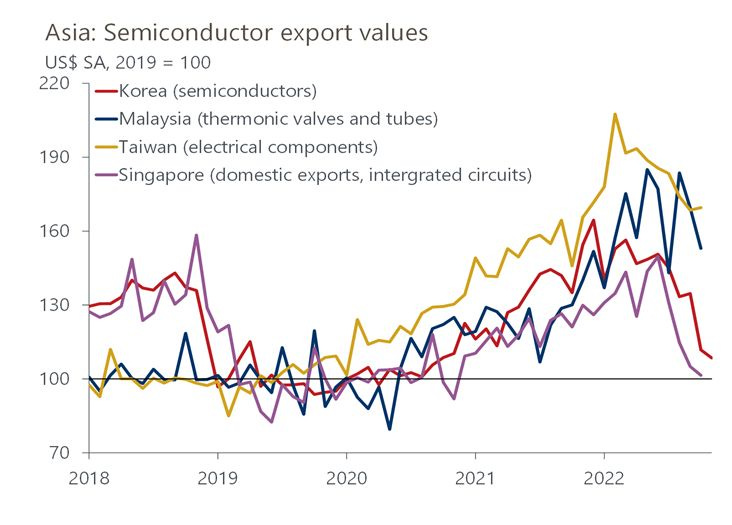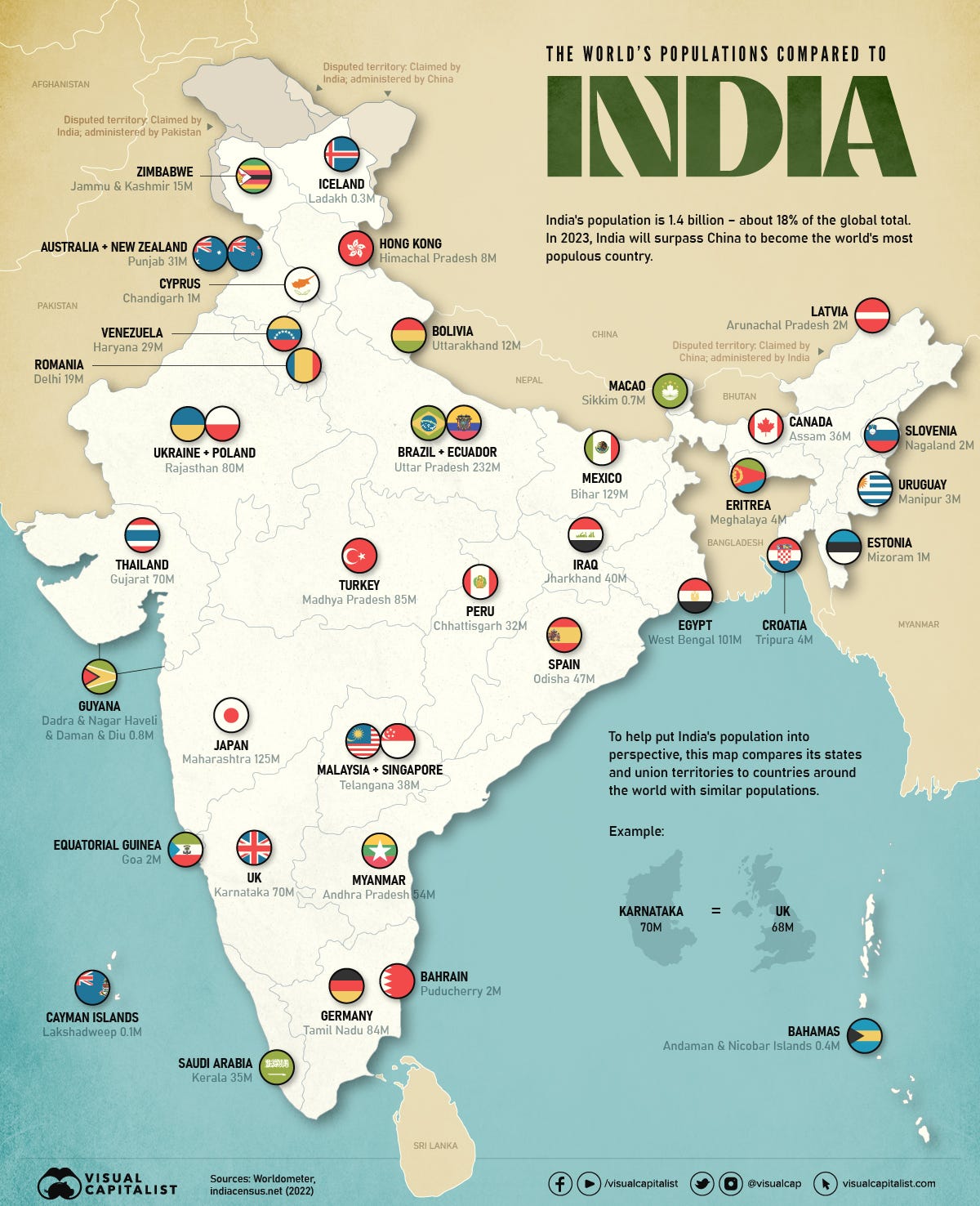In many ways, the work of a critic is easy. We risk very little, yet enjoy a position over those who offer up their work and their selves to our judgment. We thrive on negative criticism, which is fun to write and to read.
But the bitter truth we critics must face, is that in the grand scheme of things, the average piece of junk is probably more meaningful than our criticism designating it so.
- Anton Ego
The above quote is to remind myself that often when I’m critical of something, it ain’t worth the paper it’s printed on. This issue will be a bit Japan-focused FYI, but let’s get stuck in—my personal spiel at the end.
Chart of the Month:

Morris Chang's 2021 Speech on the History and Future of Semiconductors [Part 1 & Part 2]
Originally from April 2021 about the history and future of semiconductors and TSMC, but has only recently been translated. And what a goldmine this is.
A brief history and the importance of semiconductors, explaining the division of labour in the semiconductor industry, Taiwan’s advantages in wafer manufacturing, the fab-centred semiconductor industry chain, and competition from the US and South Korea, this one has it all.
Chang hits home around Taiwanese talent, and why they’re key to TSMC’s success:
excellent and dedicated engineers, technicians, operators willing to commit to manufacturing. This is very important. At least in the United States, engineers are not as dedicated as those in Taiwan. I think people in other professions as well, haha. Americans are not as dedicated as Taiwanese. […]
Manufacturing in America is no longer a “hot” industry. It has not been “hot” for decades. People don’t want to work in the manufacturing industry. […] All of the above (R&D, finance, and marketing job fields) are more desirable fields to be in than manufacturing. The commitment to manufacturing is a great advantage of Taiwan.
A couple other main takeaways:
Comparing the American wafer manufacturing conditions with Taiwan, land is America’s absolute advantage. So are water and electricity. […]
American talents are not as good as Taiwanese ones, whether it’s engineers, technicians, foremen, or operators. The personnel dispatched by Taiwan to the US, like I said, are not necessarily the best in terms of management ability. The US also lacks the ability to mobilize manufacturing personnel on a large scale.
The result is that the unit cost is significantly higher in the US than in Taiwan. It’s true that it has subsidies. The US has both the carrot and the stick, with the former being federal and state government financial subsidies. However, short-term subsidies can not make up for its long-term competitive disadvantages.
and
TSMC is the largest company in Taiwan and led by professional managers, everyone from the chairman down. Of course, there are disadvantages as well, but I do think that to set up a world-class enterprise, deploying a professional managerial leadership is still a better model. […]
We’ve also had 120,000 employees since our founding, including those who have left. This actually indicates a very low turnover rate, only about 3%, 4%. We currently have 50,000 employees and have only had 120,000 employees in total for the past 30 years.
Of course, the support from the government and society at large is very important to TSMC’s success as well. This is what I’m calling for today. I hope they will continue to support TSMC and increase the advantages of Taiwan.
Malacca Strait: why does up to 40% of global trade flow through here?
has been a recent favourite of mine. Consistent and high-quality writing. Statistics, history, and good memes. What’s not to love!?Simply put, the Strait of Malacca is the shortest sea route between the Indian and Pacific Ocean. It is over 1/3 shorter than its closest alternative. Access to the Malacca Strait facilitates up to 40% of global trade. 2/3 of China’s trade volume by sea and 40% of Japan’s sea trade. Sees 15 million barrels of oil per day go through the Strait and 1/3 of all LNG volumes to China and Japan. 80% of China’s crude oil imports (in 2016). It is the shortest sea route to get from Europe to the Far East.
Tyler Cowen on China
Sometimes feels a bit doomy, but I’d rather be doomy than have my head in the sand about risks and repercussions.
If something has not happened for a long time, most people simply forget about it. The last time a nuclear weapon was detonated against human beings was in 1945. So we simply start assuming it can't happen, it won't happen… It's not even within the set of our consciousness.
Terrorism, at different periods of time, becomes thought of as not possible; not recently, [since] of course it became salient again with 9/11. A major pandemic that affected everyone — HIV/AIDS, although it did affect everyone, was not perceived that way — is salient again. We just underinvest in catastrophes if they haven't happened in a long time.
I see this pattern in history again and again and again. I think a major war between great powers falls into that category. And now with Russia, Ukraine, China, and Taiwan, it's no longer the case. People talk about it a lot. I'm not sure how much the talk helps, but at least there's some basic awareness that these things can happen.
Japan was the future but it's stuck in the past
“after a decade here I have got used to the way Japan is and come to accept the fact that it is not about to change.”
A BBC’s Tokyo correspondent’s farewell essay after 10 years in the country that paints a bleak picture. Fair in some parts, harsher in others, the counter article below might be a better piece to truly understand it. But important to link first for context.
Actually, Japan has changed a lot

In Japan, houses are like cars. As soon as you move in, your new home is worth less than what you paid for it and after you've finished paying off your mortgage in 40 years, it is worth almost nothing. It bewildered me when I first moved here as a correspondent for the BBC - 10 years on, as I prepared to leave, it was still the same.
Smith responds “Tokyo has managed to build enough housing to make housing costs fall, even as people continued to stream from the countryside into the city. Whilst also increasing the size of the average person’s home!Wingfield-Hayes: A third of Japanese people are over 60, making Japan home to the oldest population in the world, after tiny Monaco. It is recording fewer births than ever before.
Noah? The only reason we associate the low fertility trend with Japan is that it started there first.


And why does Noah Smith’s rebuttal article even matter?
I admit that part of my determination to rebut charges of Japanese stasis is just personal pique — irritation at the cliched cultural essentialism that still defines Japan in the minds of too many Westerners. I suppose thinking of Japan in terms of the bubble and crash of the 80s is less ridiculous than thinking of it in terms of samurai traditions and The Chrysanthemum and The Sword. But still. Come on.
Perhaps, though, there actually might be a little bit at stake here. As Japan becomes a more open, globalized country, Western ideas and opinions have the potential to change Japan for the better. Outside perspectives could help Japan to solve the very real problems of the 2020s — corporate ossification, technological slowness, etc. But if Westerners essentialize Japan — if they think of it as a country and culture frozen in amber — they won’t have much to offer the country in the here and now. Japan is, in fact, a very dynamic and changeable place.
Why is Java So Weird?!
Java (an island in Indonesia, where Jakarta is located for those unfamiliar) is home to nearly 150 million people and the population density is ~1,100 people per square km. 3x the density of Japan or the Philippines, 7x that of China, and 30x that of the US.
But why?
Java has more volcanoes and fewer other types of mountains. This means lots of very fertile land that can sustain a lot of agriculture for a long period of time. The Javanese grow lots of rice with that fertile land, which feeds its huge population. The Javenese also need big families to tend to the rice fields, so natality has always been encouraged. Fertility of land have bred fertility of humans.
It’s a very visual type of post, so I can only summarise so much. Do check it out.

Japan's Bubble-Burst: The Party That Wasn't Supposed to End
Succinct. Rei has done an incredible job explaining and summarising Japan's lost decade and its consequences.
It’s not all doom and gloom for Japan today, but it does face a tough road ahead.
Japan's recovery was far from complete. The nation faced a daunting challenge in the form of a declining population and aging society, leading to a shortage of labor and a reduction in domestic demand. Japanese banks remained hesitant to lend to anyone but large enterprises, and Japanese companies resisted implementing new reforms and technologies. In fact, Japan currently ranks as the least productive country among the G7 nations. […]
The end of the lost decade may bring some relief, but it is clear that Japan still has a long road ahead to secure a bright and prosperous future.
I’m going to highlight a couple of the most popular
podcasts over Jan/Dec, but I've also done some other super interesting podcasts recently like Sean Upton-McLaughlin on Building a Career in China, Raghav Kapoor on Disrupting Investment Research with Smartkarma, Steve Vines on Defying the Dragon: Hong Kong and the World's Largest Dictatorship, and Callum Morton-Smith on Construction and Quantity Surveying in the Middle East.Bloody lucky to be able to do what I do!
ASML & EUV Lithography Deep Dive with Asianometry [Spotify] [Apple]
The engineering, the costs, and the numbers involved for EUV machines that ASML makes just make my head spin. Note that Jon did this podcast at super short notice, whatta legend!
It’s estimated that one EUV machine uses as much energy as 10 DEUV machines. TSMC has one fab that they’ve been doing a long time in Tainan, and that single fab is estimated to use as much energy as the entire country of Costa Rica. And one year of operations will light up the Eiffel Tower for 17,000 years. So that’s part of the reason why these machines not only cost so much to build, but also cost so much to run.
Rajeev Mantri, Venture Investing and India’s Economic Prospects [Spotify] [Apple]
On why India is fertile ground for Deep Tech Investing:
“India always had a very deep pool of technical talent. So India’s always had, for probably several decades now, very high-quality scientists, engineers, researchers, and so on. The human capital is already here. The second reason was that there were actually major challenges that were confronting the country, that were confronting the economy, in the areas of energy, healthcare agriculture, many of the so-called atoms-based industries. So I felt that need was there, the capability was there. So I always felt strongly that, you know, it would happen maybe if not in 2009, then maybe by 2014, if not in 2014, then maybe by 2019.”
Also gives me a chance to include this graphic comparing the population of countries to states in India. Mind-boggling stuff.
What Made the Modern World | Stephen Davies [Spotify] [Apple]
Monster thanks to Matt Joass for recommending this to me.
Modernity1 wasn’t sudden. It was a gradual change. But there have been pockets of modernity in history (the Roman Empire during the second half of the first century and most of the second century, the Middle East under the Abbasid Caliphate, and China in the 12th and 13th centuries)
during these periods and in these specific locations you do find many of the features of modernity you find intensive growth, you find a move towards greater urbanization, you find a move towards more rationalism or more skeptical scientific approach to the study of the physical world and of human existence. But the point is they do not last they are typically short-lived and the end in a kind of crisis. […]
they're replaced by something else and you get a reversion back to the historical norm of economic stagnation and lack of economic Innovation and dynamism
So as a follow-up question, why has this intensive growth, greater urbanization, and individualism that started in Northwestern Europe in the 18th century not suffered the same fate as its predecessors? Why has it lasted rather than coming to end in a crisis? INNOVATION BABY!
The magic ingredient is Sustained Innovation. Now that goes with a whole lot of other things. In particular it goes with things like free discussion and intellectual and social and cultural liberty because if you don't have those things you're not going to have innovation. Because innovators by definition are people who create something new which means very often that it's something that contradicts or wrongs against the conventional rules and norms.
Same spiel, different month, the most efficient way to share videos is through a YouTube playlist. Not a massive playlist this month, just high-quality bangers.

Also, a cheeky reminder to subscribe to my YouTube channel! I pinky promise I will try my damn darndest to post a video analysing Buffett and his Apple investment in February.
[READ] Emergent Tokyo: Designing the Spontaneous City by Jorge Almazán
Stunning book. A rare one where you’d really want a physical copy. Hopefully, will get Jorge on Compounding Curiosity soon :P
The effects of burnout are starting to appear again, but I’m hesitant to blame the actual work I’ve been doing. I think my management of my time and stress has been less than stellar. So February is aiming to be a reset of sorts. Getting my shit in order (you’d be mortified at my lack of planning, schedules and systems that keep my podcast, newsletter and various things in check).
My favourite personal trait (that does impede me sometimes), is that I have a life outside content, investing, and being online. I love golf. I love cricket. I love gardening.
For better or worse, I don’t have one true passion that I’m willing to put all my life’s work and effort into. I like to change things up.
What’s the point in being uber-successful in a single discipline, if the rest of your life is an absolute shambles?
It’s not a tradeoff I’m willing to make.
I haven’t cracked the shits and given up. But do excuse me if I ever do a Harold Holt2.
I’ll probably be having a fucking grand old time away from the computer.
You can find previous posts here. I also interview legends at Compounding Curiosity, lurk on Twitter @scarrottkalani, and have a Discord server for everything Allocators Asia + Compounding Curiosity (I’d love for you to join our cool little community we got going).
Want to get in contact? Reply to this email, comment on Substack, or send a letter via carrier pigeon and trust that fate will deliver it.
Modernity is defined as a condition of social existence that is significantly different to all past forms of human experience, while modernization refers to the transitional process of moving from “traditional” or “primitive” communities to modern societies.
Believe me, I had no clue what the term meant before starting this podcast!
mysteriously disappear never be seen again









